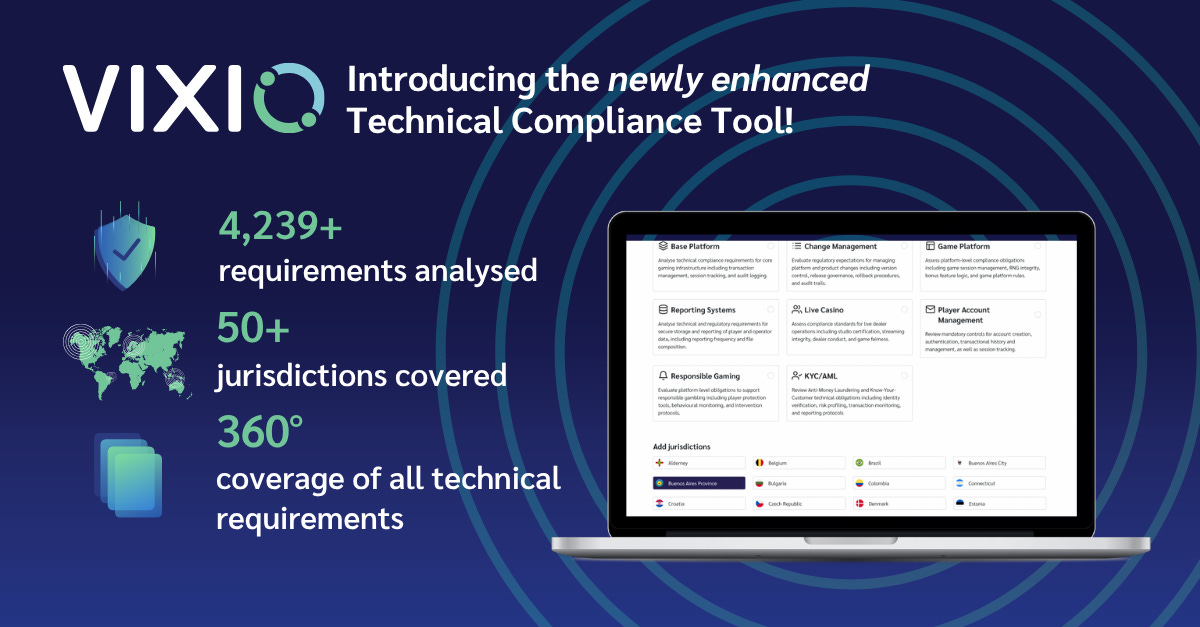Removal of ‘health warnings’ creates a rod for UKGC’s back.
Evolution hit as Philippine partner loses gambling license.
Michigan takes on sports event contracts.
Brazilian lobby group criticizes tax increase plan.
Our survey says
Paint it black: The UK Gambling Commission has published the latest results from the Gambling Survey of Great Britain (GSGB), now formalized as the official statistics base for gambling participation and harm.
The data, and the regulator’s decision to remove previous ‘health warnings’ about extrapolating prevalence rates to the population, have ignited controversy across the sector.
Critics argued that the Commission may have painted itself into a corner.
The headline numbers: The GSGB reported that 2.7% of adults in Great Britain score 8+ on the Problem Gambling Severity Index, equating to around 1.4 million people when scaled up to the population.
By comparison, previous NHS Health Surveys estimated problem gambling at around 0.3-0.4%.
This leap has been seized upon by the press and campaigners.
The Guardian led with headlines about “1.4 million Britons” having a gambling problem.
Campaign groups such as Gambling with Lives have been quick to call for further restrictions on advertising and tougher affordability checks.
For the Commission, the GSGB represents a long-planned shift away from telephone-based sampling to a rolling, longitudinal survey seen as more robust and scalable.
Yet its results diverge so starkly from historic benchmarks that doubts are inevitable.
Jumping the gun: Melanie Ellis, partner at Northridge Law, believed the regulator has moved too quickly in declaring the survey “official statistics.” “It was premature of the UKGC to call these ‘official’, even with a small ‘o’, and to take away the health warning, without sufficient scientifically rigorous testing to give confidence that the data is accurate,” she argued.
Ellis acknowledged the Commission’s desire to control the data, rather than relying on NHS surveys, and the cost inefficiency of legacy telephone methods.
But she stressed that when initial GSGB results “varied so greatly from everything that has come before,” the regulator should have paused.
She also warned of the implications for policy debates. “Now that we are allowed to scale the data up to population level, some concerning headlines about the total number of ‘problem gamblers’ in the country are possible.”
“It is likely the population numbers will be used by anti-gambling campaigners to call for higher taxes and further advertising restrictions in particular,” she added.
An almighty headache: For Dan Waugh, partner at Regulus Partners, the GSGB has created deep tensions between regulator, government and industry.
“The survey has uncovered a previously unheralded huge degree of gambling participation overall,” he noted.
“It suggests a massive unlicensed market, which was not picked up in the health survey.”
“So, either the Commission has not understood the market it is regulating or it has let rampant gambling disorder flourish.”
The track of our tears: Waugh described the GSGB as the “Commission’s HS2,” a reference to the UK’s flailing high-speed rail project.
“It’s a costly, flawed project too politically and institutionally invested in to reverse,” he said.
“They spent an awful lot of money on this. They are not prepared for this not to work. It will work because it has to work.”
He warned that the data “absolutely feeds into the discussion on tax” and would embolden campaigners.
“You will see intense lobbying over further ad bans. And it will effectively have the GC’s badge on it.”
Black market blind spots: Both Waugh and Ellis stressed that the GSGB’s utility depends on understanding the dynamics of the licensed vs. unlicensed market.
Ellis argued: “If [the UKGC] wants to assess whether player protection measures imposed on the licensed industry are effective, it urgently needs to be able to segment its GSGB data into customers using licensed and unlicensed operators.”
This is no small challenge, given that many players use both channels and may not even be aware of the licensing status of operators.
Without it, assessing whether regulatory interventions improve outcomes is nearly impossible.
Regulatory capture or sunk costs? Underlying the debate is the question of motivation. Waugh suggested that a “degree of regulatory capture” and “a priori bias” within the Commission has primed it to believe past surveys understated harm.
Once the GSGB was underway, sunk costs locked the regulator into pushing the project through.
Ellis, meanwhile, highlighted the risk of measures backfiring.
“It is difficult for the industry to reduce the overall rate of problem gambling in the population, particularly because further steps such as account restrictions simply drive customers to unlicensed operators, where they will experience little to no safer gambling protections,” she said.
What comes next? The GSGB data is already shaping political pressure. Campaigners are citing its findings to demand tougher restrictions, while Treasury officials are expected to consider whether the prevalence figures justify higher remote gaming duty.
For operators, the message is clear: Regulators and government will expect the data to inform risk assessments and customer interaction models.
“At the moment,” Waugh said, “the interaction guidance is pretty vague. You can see that changing”.
The Commission itself has signalled that it sees the GSGB as a long-term tracking tool, allowing it to measure changes over time.
But whether the survey methodology stabilizes, and whether it retains public and industry confidence, remains uncertain.
Increase Operator Margins with EDGE Boost Today!
EDGE Boost is the first dedicated bank account for bettors.
Increase Cash Access: On/Offline with $250k/day debit limits
No Integration or Costs: Compatible today with all operators via VISA debit rails
Incremental Non-Gaming Revenue: Up to 1% operator rebate on transactions
Lower Costs: Increase debit throughput to reduce costs against ACH/Wallets
Eliminate Chargebacks and Disputes
Eliminate Debit Declines
Built-in Responsible Gaming tools
To learn more, contact Matthew Cullen, chief strategy officer on Matthew@edgemarkets.io
+More
See you in court: The high-profile bribery case against former GVC CEO Kenny Alexander will face trial at Southwark Crown Court beginning November 3, after a Westminster Magistrates’ hearing. All 11 defendants face charges including conspiracy to defraud and conspiracy to bribe for alleged offences between 2011 and 2018. No pleas were entered at the initial hearing; pleas are expected in November.
Sweden: Anna Johnson, CEO of state-owned Svenska Spel, has proposed 18 smart measures to strengthen Sweden’s gambling market and enhance consumer protection. The plan addresses three core problems: low channelization (below 90%), unlicensed operators and rising gambling harms – especially among youth and women. The proposals include risk-rating of products, stricter rules for high-risk games, bans on bonuses, low-credit restrictions, tougher oversight and protections for the under-25s.
Evolution’s Philippines troubles
One off: Evolution saw its shares fall sharply last Thursday after its new Asian partner, One Visaya Gaming Corp., was stripped of one of its key licenses in the Philippines.
The setback comes less than three months after the two companies launched Evolution’s first live casino studio in Asia.
The Philippine Amusement and Gaming Corp. (PAGCOR) confirmed it revoked One Visaya’s license as a gaming system administrator due to violations of know-your-customer rules designed to prevent fraud and money laundering.
While the Cebu City-based company retains its separate license to operate a gaming venue, needed to host the shared live casino studio, PAGCOR ordered its Bigwin29 consumer casino site to shut down by tomorrow, October 8.
Evolution and other suppliers must cease providing games to the platform, while One Visaya considers an appeal.
A man of distinction: Evolution stressed the distinction between B2B and B2C approvals, emphasizing “there is no issue with the studio,” which remains operational under a B2B license.
Spokesperson Adrian Westman told Bloomberg that Evolution continues to comply with “proper due diligence” in partner relationships.
The partnership with One Visaya had been hailed in June as a “major step” toward delivering localized, compliant products for Asian markets.
The episode comes amid mounting scrutiny of Evolution’s operations. In August, shares slumped after court filings revealed secretly recorded footage alleging the company’s games reached restricted markets, including Iran, Sudan and China.
Evolution reiterated at the time that it had “no interest” in serving sanctioned jurisdictions and employed industry-leading controls to block unauthorized access.
Michigan’s predictions move
Don’t try that here: The Michigan Gaming Control Board (MGCB) has warned licensees that involvement in offering or handing access to sports event contracts could jeopardize their suitability to operate in the state.
In a memorandum circulated this week and shared by gaming law attorney Daniel Wallach, the MGCB said any such activity “will have implications” for a company’s licensing status.
It urged operators “actively pursuing any involvement” in sports event contracts to provide prompt notice to the regulator.
The agency said it was now overseeing the issue as part of its “statutory duty to monitor and evaluate each licensee’s continued suitability for licensure.”
The MGCB will focus on firms “directly or indirectly operating, offering or facilitating access to sporting event contracts in Michigan” that fall outside current state law, it added.
Laying tracks: Although no explicit penalties were outlined, the MGCB reiterated that licensees must demonstrate integrity, business probity and financial responsibility “by clear and convincing evidence.”
This standard extends to the actions of affiliates, key persons and related business entities, it said.
The regulator also warned against “partnering, coordinating or associating” with entities offering sports event contracts that have not been approved by the MGCB (hello Kalshi et al)
Duty calls: The MGCB pressed an “ongoing duty” for licensees to report any material changes in circumstance or ownership that may affect suitability.
The statement follows growing scrutiny of prediction market-style products across the US, as state regulators react to their rapid emergence and uncertain legal standing under both state and federal law.
Michigan’s intervention signals a more proactive approach to preventing unlicensed market activity within its borders.
Brazil tax rise under fire
Go take a hike: The Instituto Brasileiro de Jogo Responsável (IBJR) has publicly criticized a proposal within the draft report set before parliament that seeks to raise the tax rate on betting operations from 12% to 18%.
According to the IBJR, the hike would represent an excessive tax burden that could harm the regulated gambling ecosystem and disincentivize compliance and investment in the sector.
The IBJR emphasized regulation of betting and gambling should balance revenue goals with the sustainability of the industry and consumer protection mechanisms.
A push and a shove: The organization warned an abrupt increase in taxation might drive operators underground, suggesting it would push bettors toward unlicensed markets, undermining the objectives of oversight, prevention of problem gambling and fraud control.
In parallel, stakeholders and parliamentary groups have mobilized against the tax raise, arguing it would escalate the total tax burden on companies in the sector.
The debate is part of a broader clash over the measure, which proposes sweeping changes to the taxation of financial instruments, investments and digital assets.
They have been identified as a means to offset lost revenues after the repeal of an expanded IOF (Tax on Financial Transactions).
Mixed views: The measure is now under examination by a mixed congressional commission, headed by Senator Renan Calheiros, with Deputy Carlos Zarattini as rapporteur.
The commission has scheduled public hearings to debate key items, including the taxation of betting, to allow industry participants, experts and civil society to present their positions.
Meet the Mindway AI Team at G2E 2025 in Las Vegas
Join us at G2E 2025 in Las Vegas from October 6-9. Discover world class solutions for player protection, as we collaborate with operators across over 64 jurisdictions both online and land based. Schedule a meeting to discuss how we can enhance your player protection strategies and optimise your long-term operations.
Reach out to us at contact@mindway.ai
Timor-Leste revokes licenses
Cancel culture: The government of Timor-Leste has approved a resolution to cancel all existing and pending online gambling licences following serious concerns over criminal activity linked to illicit gambling operations.
This move was triggered by a United Nations Office on Drugs and Crime report that revealed suspicious activity in the enclave of Oecussi.
Authorities arrested 10 individuals there on allegations tied to illegal gambling, and the report also flagged a potential conflict of interest: a government official was said to own a hotel used in those alleged operations.
Virtue signaling: The Council of Ministers framed the decision as essential to protect national security, social stability, economic integrity and international reputation, especially given Timor-Leste’s imminent entry into ASEAN.
The government emphasized it would enforce the cancellation strictly to signal that the country will not tolerate weak oversight or illicit cross-border schemes.
This marks a sharp reversal from earlier policy.
Cry me a River: Timor-Leste had previously licensed a single offshore operator, Golden River Universe Lda, and approved plans to build a gambling hub in Oecussi – measures intended to attract foreign investment, jobs and technological capability.
But escalating risk and reputation concerns, influenced by regional precedents in the Philippines and elsewhere, have led to a more cautious stance.
Calendar
Oct 7: Gaming in Germany webinar.
Oct 20-23: IAGR, Toronto
Oct 22: EGR Summit, London
Nov 11: Gaming in Germany, Berlin
Nov 18: Sustainable Gambling Conference, Brussels
Are you still relying on spreadsheets for your compliance process?
As an operator or supplier, how do you ensure your designs are compliant with highly detailed – and often divergent – technical requirements that are imposed by gambling authorities in regulated markets worldwide.
With regulatory frameworks diverging globally, speed-to-market has become a competitive advantage for gambling operators and suppliers.
To meet that pressure, Vixio’s Technical Compliance Tool is the industry’s first one-stop solution for technical compliance in online gambling. It consolidates requirements for online casino games across major iGaming markets.
Check out this webinar, in which Vixio experts will explore the latest developments shaping the technical compliance landscape and how the Technical Compliance Tool can help.
An +More Media publication.
For sponsorship inquiries email scott@andmore.media.







